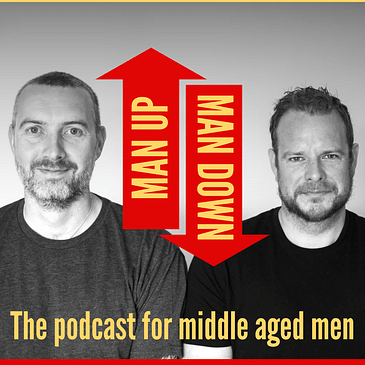This was a true revelation for Volker to listen to David and his challenges with adult autism, ADHD (attention deficit / hyperactivity disorder) and neurodiversity. There seems to be a “trend” of more people being diagnosed with ADHD and autism, and unfortunately the NHS is too overwhelmed to actually give everyone the attention they need. They list the top signs of adult ADHD on their website. There are superpowers we all know from the 1980ies movie Rainman, from sketching a building after only seeing it for seconds, to counting toothpicks on the floor (Rainman) - not everyone with autism can do that, and David doesn’t have any of those superpowers.
David has been researching it for over 8 years, and he isn’t satisfied that he doesn't know everything about the subject yet which is a trait of people with adult autism. Neurodiversity is the umbrella term, with autism, ADHD or OCD (obsessive compulsive disorder) being forms of it. The main “symptoms” are either to have difficulties concentrating or hyperactivity and impulsiveness. The naughty schoolboy comes to mind.
Looking at a list of signs of autism, Volker discovers that some of those are very common. So how do we differentiate between being autistic and being “normal” (whatever normal means).
- Finding it hard to understand what others are thinking or feeling
- Getting very anxious about social situations
- Finding it hard to make friends or preferring to be on your own
- Seeming blunt, rude or not interested in others without meaning to
- Finding it hard to say how you feel
- Taking things very literally – for example, you may not understand sarcasm or phrases like "break a leg"
- Having the same routine every day and getting very anxious if it changes
- Not understanding social "rules", such as not talking over people
- Avoiding eye contact
- Getting too close to other people, or getting very upset if someone touches or gets too close to you
- Noticing small details, patterns, smells or sounds that others do not
- Having a very keen interest in certain subjects or activities
- Liking to plan things carefully before doing them
David says that when the above causes disruption and real anxiety in your life is what differentiates neurodiversity from being “normal”. Or as one of the leading experts in autism puts it “The key question is: are autistic characteristics interfering with your ability to function?”.
David describes in detail how he plans any social setting and how he gets the storytelling mind, asking ‘what if that happens or that’. There is a constant commentary that he finds difficult to turn off.
Or he hyperfocuses on one thing that distracts him from getting on with his day - for example, waiting to get an email about a confirmed work project can stop him from getting on with the work he already has!
He further describes how tired he is and how exhausting this constant ‘nagging’ can be, he is comparing it to swimming with an anchor. This sometimes makes it difficult to deal with his children and family and friends sometimes. Anything unplanned, even pleasant surprises, can be difficult to cope with. He also describes a constant feeling of being on edge and finding it difficult to cope. Alcohol, which we spoke about, does help in social settings in order to get over the initial limitations of being social. But that can’t be the solution.
David also suffers with depression, having anxiety about how good things are that he produced. This includes the podcast, and where he procrastinates in terms of reviewing the podcast and the shownotes.
Despite his challenges, he puts his life into perspective, making sure he stays positive and has goals to aspire to. Alistair Campell, who we would love to have on the podcast, sees depression as a scale from 0-10; “0” “I will kill myself” and 10 being “I am on the top of the world”. However he takes the view that he won’t ever allow himself to get to zero and is unlikely to ever reach a 10 (despite having orchestrated one of the biggest election wins in UK history).
Diagnosis of autism has jumped by almost 800% in the last two decades. This article just shows how the awareness has increased while the median age has gone up. In short we are seeing more diagnosis of older people. David believes this is because if you were doing “ok” at school, you’d fly under the radar and weren’t showing behavioural causes for concern.
However as there is growing awareness of symptoms, and diagnoses of high profile celebrities, more people are seeking answers.
David mentions that he first began learning about autism when he studied psychology at college. He then noticed certain behaviours in family members that he felt were typical of autism. Which then led his partner to say “but that’s exactly how you react in those situations”...
There is no cure or medication for ASD (although there is for ADHD, if you can afford private treatment or are patient enough to wait several years for diagnosis on the NHS).
However David has found a regular mindfulness practice helps when he has periods of overwhelm.
As always, please let us know what you think and reach out with any guests we should get on to deep dive into this topic? Have you been affected by ADHD, share your experience and get in touch!
Hosted on Acast. See acast.com/privacy for more information.




